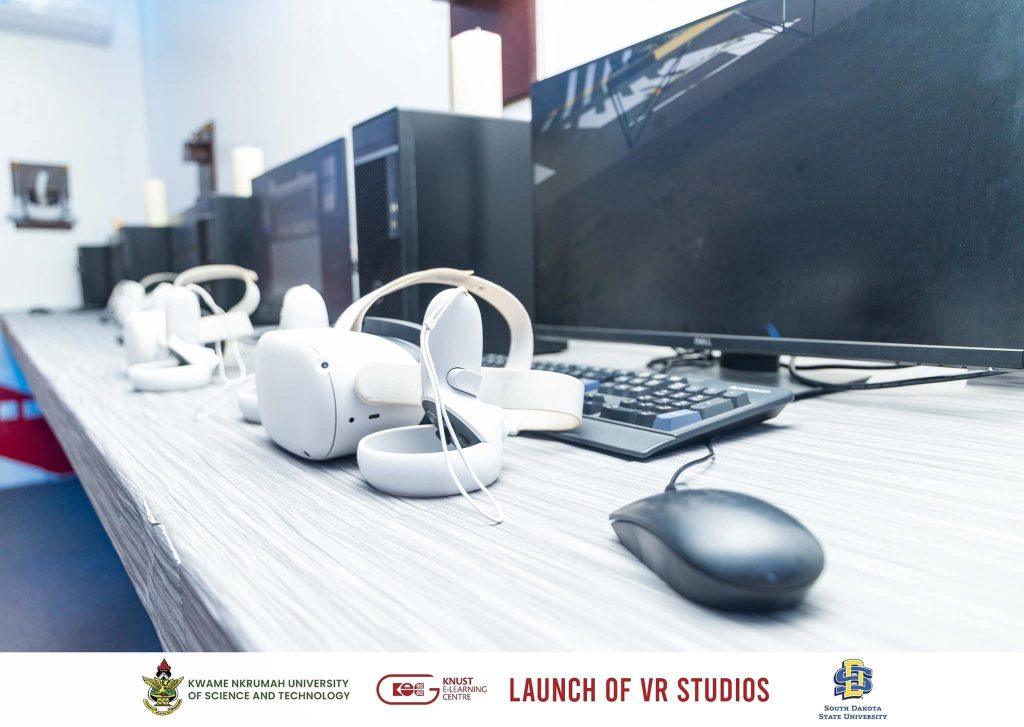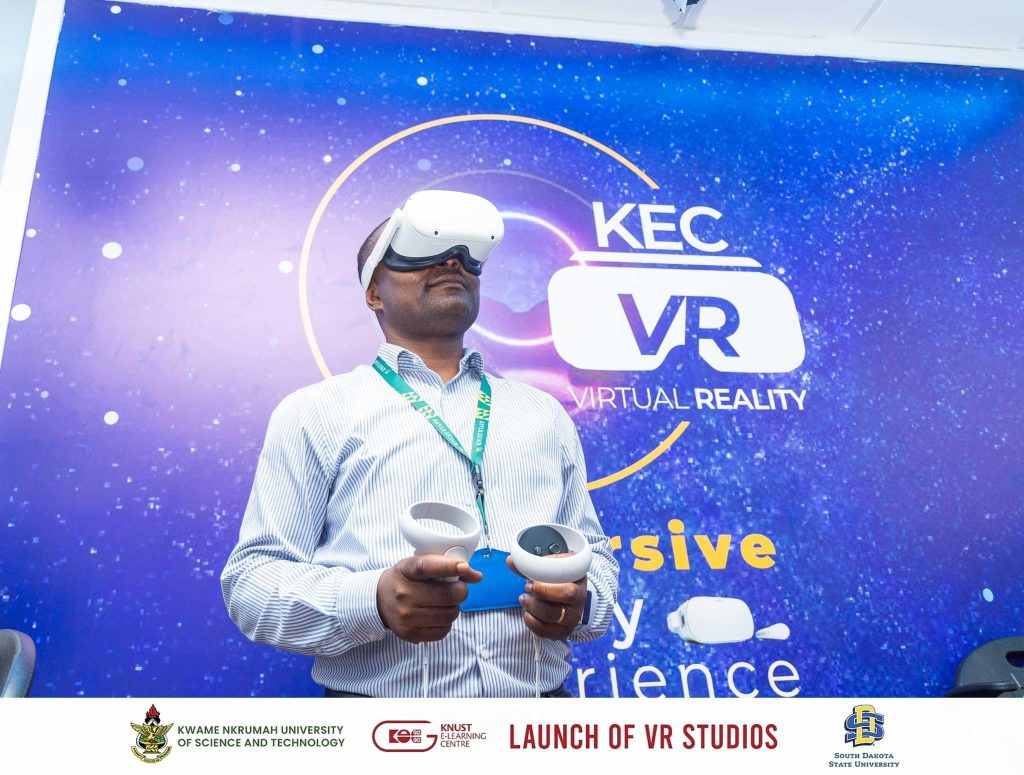By Florence Afriyie Mensah
Kumasi, May 3, GNA – The Kwame Nkrumah University of Science and Technology (KNUST) has inaugurated Ghana’s first ever virtual reality (VR) studios designed to foster innovative ways of learning.
The facility, which seeks to promote the use of cutting-edge e-learning technologies and pedagogical strategies to facilitate teaching and learning, falls under the Vice-Chancellor’s digitization agenda.
It comprises 11 high-tech VR devices for immersive learning, as well as exploration and two ideation rooms intended to foster creativity, collaboration, and innovation.
The studios are an all-inclusive space that cater for different disciplines and learning preferences.
Professor Mrs. Rita Akosua Dickson, Vice-Chancellor (VC), KNUST, at the opening of the virtual reality studios, said it epitomized the University’s commitment to embracing cutting-edge technologies and leveraging it to enhance the quality and effectiveness of higher education.
She indicated that with the annually increasing admission numbers, coupled with advancing innovations in the field of digitalization in education, the KNUST was at the ripe point to embrace this innovative technology to better serve its students and faculty.
According to her, the University through the E-Learning Centre was in the process of setting up a fifty-device Virtual Reality (VR) Lab for demonstration and to support various colleges in delivering practical lessons to afford students the feel of real cases that required an immersive experience.
“We are moving from abstract concepts to immersive learning.

From exploring engaging medical practical, and engineering demonstrations to conducting experiments in virtual laboratories, the possibilities are endless.
Indeed, exciting times are ahead. Through this VR Lab, the opportunity to transcend traditional boundaries and immerse in virtual environments that bring learning to life is presented,” she assured.
Prof. Eric Appau Asante, Director of the KNUST E-Learning Centre, observed that these innovative ways of learning would improve retention rate by offering engaging and memorable educational opportunities.
He used the occasion to encourage students and faculty members to put the facility to judicious use.
Prof. Asante believed that the facility would either stimulate scientific experiments or virtual field expeditions for all to benefit.

Prof. Leonard Kofitse Amekudzi, Provost of the College of Science, KNUST, was optimistic that the studio would provide students with the opportunity to visualize very complex issues relating to science and provide an imaginary real world.
Prof. Charles Ofosu Marfo, Provost, College of Humanities and Social Sciences at the KNUST, was happy the studios could assist students with disabilities to learn easily.
He explained that these students could sit at the laboratory and access everything that would have been done on the field.
GNA